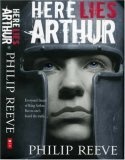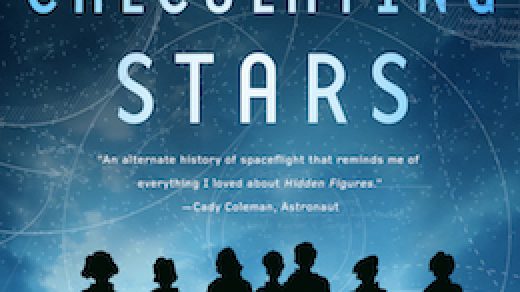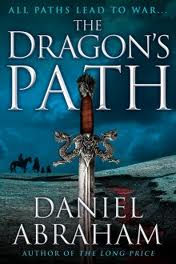
LibraryThing | Author’s site
Some stories will never stop being retold. How many different versions of the Arthurian legends are there out there? And do we really need another? Well, why not. I mean, just because you share the germ of an idea with someone doesn’t mean you can’t go something new with it. A retelling can be more original than the original.
This version of Arthur’s story is shown to us through the eyes of Gwyna, an orphan slave-girl, who’s home is raided by Arthur and his band of warriors. But she is found by Myrddin, and he has a role for her to play.
Gwyna spends her time alternating between pretending to be a boy, and then trying to act like a girl. She fits in neither world, for she knows too much of both, for such a gender-divided time.
It uneased me to hear the way they [the boys] spoke. How hard they thought of girls’ bodies, and how little of their feelings. Like women were just creatures to be used and traded. They respected horses better.
Of course what she really knows of are teenage boys, on the verge of manhood, bragging to one another, showing off, and trying to be men. Or trying to portray themselves as men. Nevertheless the book as a whole is a good example of the cultural differences that exist between the genders. Although the fact that the Peri character so blatantly takes on the male role when still believing himself a girl annoyed me a little. It seemed to suggest that boys are somehow more natural while girls are created. However that isn’t fair to the story, as Peri is growing out of childhood at that time, and never knew to hide his maleness, as he didn’t know about it. Gwyn, on the other hand knows who and what she is, and what she must disguise. And by the time hormones start affecting her in a major way Myrddin is aware that she cannot continue as she is.
As well as the interesting take on gender, the book itself takes an interesting approach to Arthur himself. He is no hero, merely a war leader, out for land and power. But because of Myrddin’s propaganda and storytelling he is seen in a different light. And makes him into the legend we know today.
“Everyone loves a story,” he always said. And whatever Arthur did, Myrddin could turn it into a story so simple and clean that everyone would want to hear it, and hold it in their hearts, and take it out from time to time to polish it and see it shine, and pass it on to their friends and children.
Reeve also uses the fact that most readers know the story of Arthur, together with the fact that these are Gwyna’s memories to foreshadow and hint at what is to come. So we meet a character and already we are wondering how he will shape this or that part of their story.
Overall, thumbs up for an entertaining and interesting take on Arthur & his k-nig-its, but I never really fell in love with the story. Gwyna, while interesting, never really gripped hold of my imagination. And I never had a real sense of her as a character. Still worth a look if you’re an Arthur fan though.
Other reviews: Things mean a lot (upon whose recommendation I picked this up) ; A Bookshelf monstrosity ; Vulpes Libris ; Travizzt Reviews




Sorry to hear you didn't love it as much as you were hoping to! The Peri thing – I interpreted more as, like you said, him not knowing there was anything that should be hidden, than as the book suggesting maleness was more natural than femaleness.
Ahh, if we all loved the same things life would be pretty boring :) I'm still glad I read it, and I did enjoy it. I'll keep my eye out for more by Reeve.